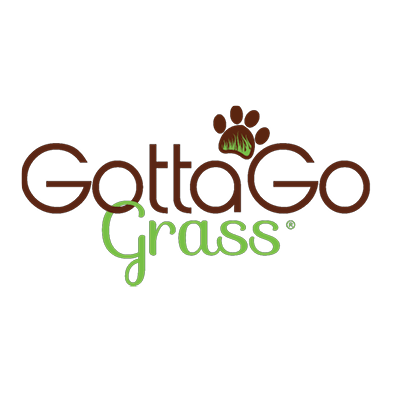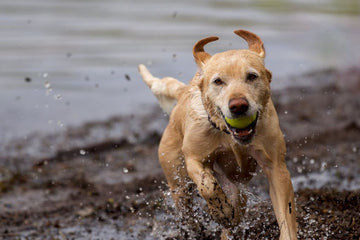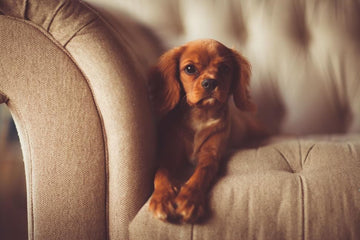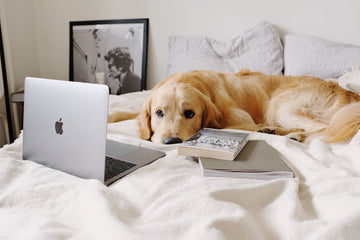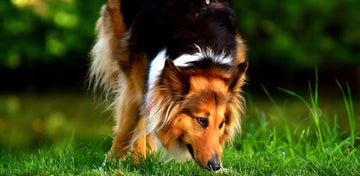
You’ve made it through potty training. Your puppy was doing great—no accidents indoors for days, maybe even weeks or months. You were finally feeling done with the house training phase, confident in your routine. Then one day, out of nowhere, your pup pees on the carpet. You clean it up, chalk it up to a fluke. But the next day, it happened again.
One accident? Normal. However, when it becomes a pattern, it may be a sign of regression in puppy potty training.
Even adult dogs or older puppies can regress, especially after changes in routine or environment. The good news? Regression doesn’t mean failure. With the right approach—and tools like a grass pee pad for dogs—you can get back on track without having to start from scratch.
What is Potty Training Regression in Puppies?
Potty training regression refers to a return to unwanted behaviors after a period of success. For dogs, that often means accidents inside the house, ignoring established routines, or suddenly forgetting where and when to go.
It can feel frustrating, but it’s common, especially in young dogs, older puppies, or even older dogs who have experienced a recent change. Puppies are still learning, and like kids, they can forget or test boundaries. Regression can also affect previously consistent dogs, especially if there’s a new pet, baby, or disruption at home.
The key takeaway? It’s not a sign your dog is “bad.” It’s a sign that something needs attention.
5 Signs of Puppy Potty Training Regression
Regression often reveals itself through small shifts in your dog’s behavior—especially around their potty routine. Maybe your pup was holding it like a champ and signaling when they needed to go out, but now you’re finding accidents indoors with no warning. A sudden return to old habits usually means something has disrupted their understanding or comfort with the routine. Recognizing these signs early can help you course-correct before the situation escalates.
Accidents in previously mastered areas: If your dog starts eliminating where they used to be reliable, it’s a red flag.
Going inside right after a walk: If your dog waits to relieve themselves until they’re back inside, it may signal confusion or discomfort.
Increased frequency of indoor peeing or pooping: More frequent accidents, especially in different rooms, can also indicate regression. This may also suggest a medical problem.
Hiding or sneaking away to eliminate: If your pup is suddenly seeking corners or under furniture, they may be unsure of what’s expected. This behavior can also point to fear or anxiety around pottying.
Ignoring potty cues or commands: A dog who previously responded to "go potty" but now ignores it may be regressing—or distracted by something else, like a new environment or added stressors.

Why Does Regression Happen?
Understanding the why helps you respond with empathy and strategy. Here are common causes:
Inconsistent routines or supervision: Skipped potty breaks, too much freedom too soon, or changes in household routines can confuse your pup.
Stress or anxiety: New environments, loud guests, travel, or a new pet can create emotional stress. Dogs may regress in response.
Medical issues: Health problems like urinary tract infections, inflammatory bowel disease, or bladder issues can make it hard for your dog to hold their pee. Always rule out medical causes.
Territorial behavior: Male dogs—especially unneutered ones—may start marking indoors during adolescence.
Developmental stages: Just like kids testing limits, older puppies can regress temporarily during growth spurts or mental leaps.
How to Address Dog Potty Training Regression
When your dog starts having accidents inside after weeks or months of progress, it can feel like you’re back at square one. But don’t worry—puppy training regression is usually temporary and manageable with a thoughtful approach. The key is not to panic or punish, but to calmly assess what’s going wrong and take steps to guide your dog back to success. Reinforcing the basics, observing behavior, and staying consistent with your potty routine can make all the difference.
1. Stay Calm and Avoid Punishments
It’s tempting to scold your dog, but doing so can create fear or anxiety, leading to even more accidents indoors. Positive reinforcement, patience, and clear guidance go a long way.
2. Identify the Underlying Cause
Start with observation. Have there been recent changes in routine, environment, or emotional stressors? Could it be a medical issue? Understanding your dog’s regression starts with asking the right questions.
3. Reinforce Potty Habits Like It’s Day One
It’s okay to go back to the basics. Start reinforcing the house training routine:
-
Schedule regular potty breaks, especially after meals, naps, and play.
-
Use crate training to support bladder control.
-
Lead your dog to the same spot outdoors or on a grass pad.
-
Reward successful potty behavior immediately with treats and praise.
Consistency in training, routine, and reinforcement is what helps your dog understand what’s expected of them.
4. Observe Patterns and Take Notes
Keep a journal to track key details like when your dog eats and drinks, when and where they eliminate, and the specifics of any accidents—location, time, and what happened just before. These observations can help you identify patterns or triggers, such as skipped bathroom breaks, prolonged gaps between outings, overstimulation, or even changes in their environment that may be contributing to the regression.
5. Use the Right Products to Clean Up
Don’t underestimate the power of a clean environment. A dog’s nose is strong, and lingering odors can lead them to pee in the same spot again.
-
Use enzymatic cleaners to fully break down and remove pet messes.
-
Avoid ammonia-based cleaners, as they can have a strong, urine-like odor that may further attract your dog.
-
Reinforce good habits with the right tools—like a grass pee pad with a tray to guide them where to go.

Why Gotta Go Grass® Pad for Dogs Works During Regression
When your dog is relearning potty habits, having the right tools makes all the difference. Gotta Go Grass is an effective solution during dog potty training regression because it is real grass—providing a familiar surface and scent that encourages your dog to go in the right spot.
Real grass feel and smell – Encourages dogs to go where it feels natural.
Portable and versatile – Use indoors, on balconies, or during travel.
Encourages consistency – Reinforces one familiar spot for potty breaks.
Great for all ages – Whether you're training a new pup or supporting an older dog, it’s effective and reliable.
Odor control – Natural grass helps manage smells better than synthetic pads.
If your pup is struggling with accidents inside, Gotta Go Grass can help bridge the gap between where they are now and where they need to be.
When to Call a Professional Dog Trainer
If you’ve tried all the steps and your dog is still struggling, it might be time to call in a professional. A certified dog trainer can be especially helpful if your pup shows signs of stress or fear around potty time, if there’s been no improvement despite weeks of consistent training, or if there are other behavioral issues complicating the house training process. A professional can assess your dog’s age, temperament, and environment to create a customized plan—and provide the guidance and tools needed to work through your dog’s regression more effectively.
Final Thoughts
Puppy potty training regression can feel frustrating, but it’s a temporary phase—not a failure. Whether it’s a young dog still learning or an older dog reacting to change, accidents happen. What matters most is how you respond.
Stay calm, stay consistent, and return to the basics if needed. Use tools like Gotta Go Grass to help reinforce healthy habits, and always rule out underlying issues. With a bit of patience and a lot of love, your dog will get back on track—and your floors will stay dry.
Frequently Asked Questions
1. How to fix potty training regression?
1. How to fix potty training regression?
Go back to the basics—offer frequent potty breaks, supervise closely, and reward successful trips. Use tools like grass pee pads and enzymatic cleaners to reinforce good habits and prevent repeat accidents.
2. Why is my dog suddenly not potty trained?
2. Why is my dog suddenly not potty trained?
Sudden accidents can be due to stress, changes in routine, or health issues like urinary tract infections. It may also be a sign of training regression, especially in puppies or older dogs facing disruptions.
3. Is it normal for puppies to regress in training?
3. Is it normal for puppies to regress in training?
Yes, it's normal for puppies to go through temporary setbacks as they grow and adjust. With patience and consistency, most quickly return to good potty habits.
